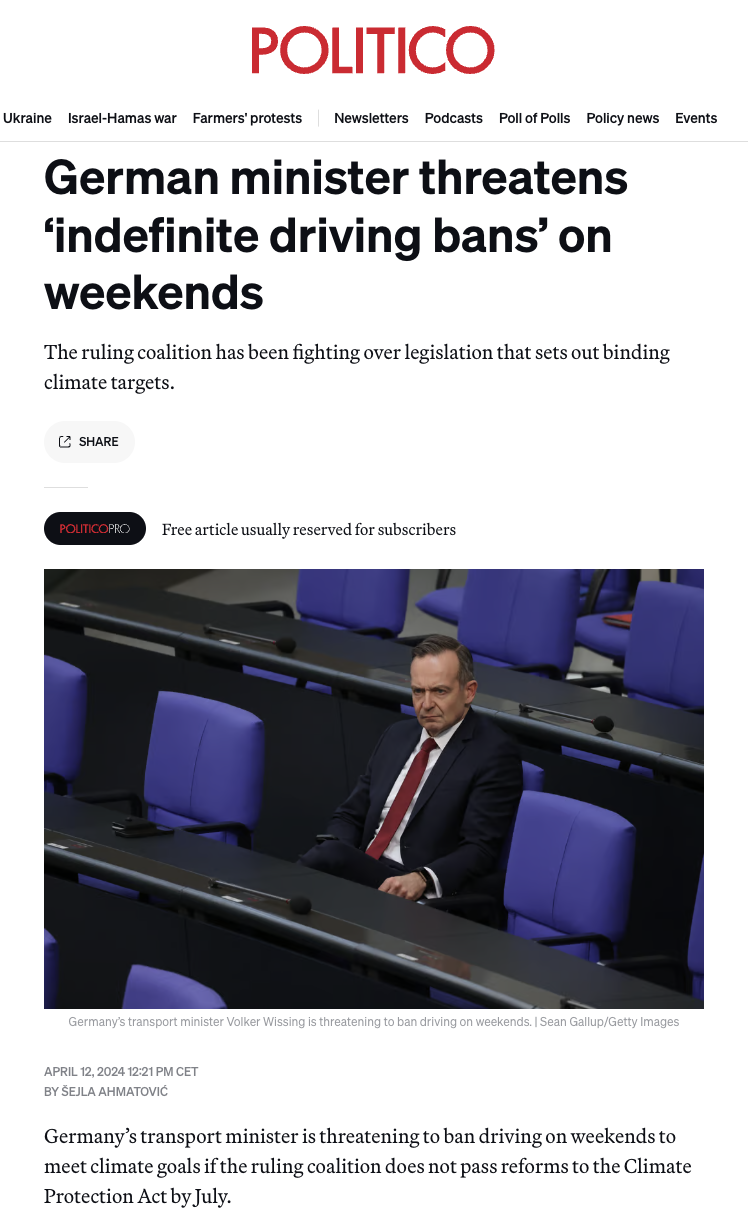http://industrialprogress.com/is-a-carbon-tax-good-for-human-flourishing/
By Alex Epstein
Is a carbon tax good for human flourishing?
This year I’ve had a couple discussions with Republicans considering supporting a carbon tax. Here’s how I’ve been breaking down the issue. Let me know what you think.
1: Pro-flourishing policy requires recognizing the fundamental importance of minimizing energy prices
My goal in considering a carbon tax or anything else is human flourishing, particularly American flourishing, now and in the future.
- Abundant, affordable, healthy food
- Abundant, affordable housing
- Abundant, lucrative, rewarding job opportunities
- Abundant, affordable health care
- Abundant leisure and family time
- Abundant, affordable opportunities to enjoy nature
- High environmental quality
- High climate safety
All of these are driven by the abundance, affordability, and reliability of energy.
When energy becomes more affordable, everyone becomes more productive and everything becomes more affordable.
When energy becomes less affordable, everyone becomes less productive and everything becomes less affordable.
When American energy in particular becomes less affordable, everyone in the US becomes less productive and our products become more expensive and less competitive.
So, when we’re dealing with a specific concern, such as rising CO2 levels, making energy more expensive and in particular making American energy more expensive should be an absolute last resort.
2: Assessing concerns about CO2 levels should be done by a human flourishing standard with maximum precision
It’s important to examine what the impacts of increasing CO2 levels are.
But we must be clear on our goal, which should not be to minimize climate change but to maximize climate safety.
We need to be precise about the impacts of CO2, including where they fall on the continuum of trivial to massive, positive to negative (or both), easy adaptation to difficult adaptation, uncertain to certain.
My current assessment: The dramatic increase in climate safety as CO2 levels rise indicates that impacts are possibly net positive but above all manageable to the extent we have affordable energy to power our modern climate protection infrastructure.
Thus, current policy should not in any way penalize CO2 emissions.
But to prepare for future changes in knowledge it’s important to identify what policies would be desirable if CO2 can be demonstrated to lead to significant problems.
3: How to make American policy to reduce CO2 levels—if and when that’s desirable
The key question is: What will significantly reduce CO2 levels at the least cost?
One basic possibility is affordable CO2 extraction. This is very far off but worth continuing to research and develop.
The other basic possibility is globally competitive non-carbon energy—making non-carbon energy truly affordable and reliable on a large scale.
There are two ways to go about this: invest in promising new technologies, remove any barriers to existing low-carbon technologies.
There is an enormous opportunity to remove barriers with the most fundamentally promising energy technology, nuclear energy.
Nuclear has a proven history of providing affordable, abundant, reliable energy before it was criminalized.
The number one policy you can take to give us the option of reducing CO2 levels at low cost is to decriminalize nuclear energy.
Today’s policy of subsidizing intermittent energy schemes that are highly dependent on fossil fuels while criminalizing nuclear is insane and anti-human.
The policy of taxing today’s most affordable energy specifically in the US will lower our quality of life and above all the competitiveness of our industry while doing virtually nothing to reduce global CO2 levels.
The Human Flourishing Project: Nutrition (part 1)
On the latest episode of The Human Flourishing Project I discuss two processes I am using to sift through self-proclaimed experts on nutrition.
Visit our Facebook page and join in the discussion. And for the latest news visit humanflourishingproject.com where you can sign up to receive email updates.


